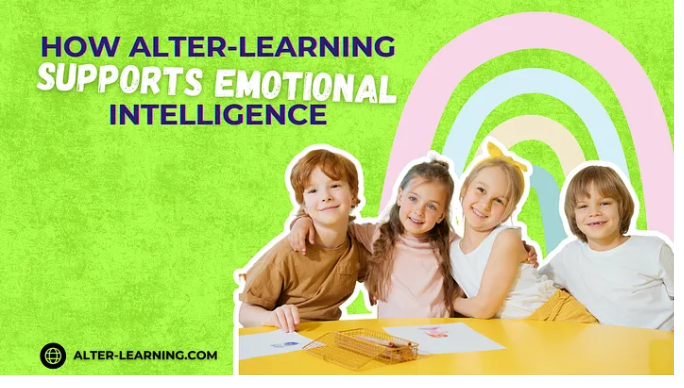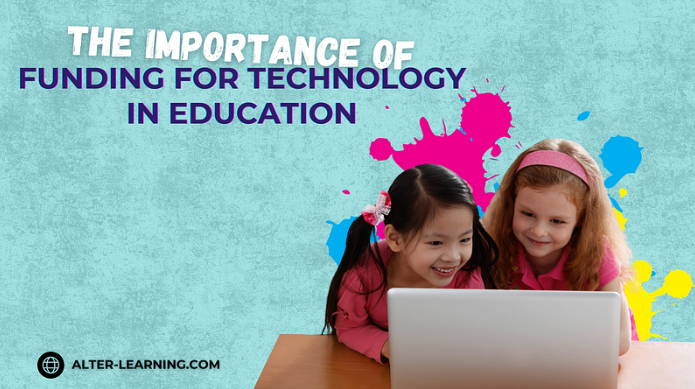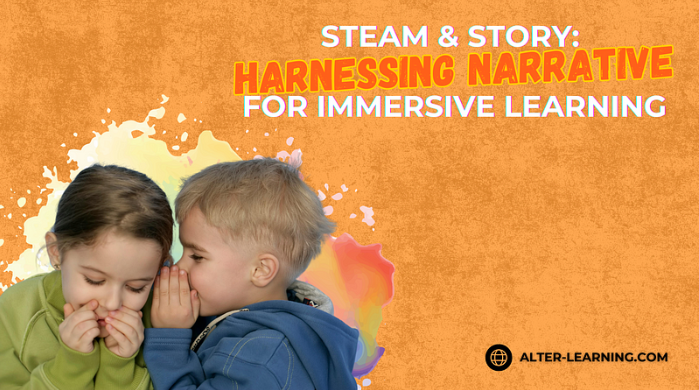In today’s complex world, academic achievement alone may not be enough. Emotional intelligence—the ability to recognize, understand, and manage one’s own emotions while navigating social interactions with empathy—can play a critical role in how students learn, collaborate, and thrive both inside and outside the classroom.
Educators are increasingly turning their attention to emotional development alongside cognitive growth, particularly in the formative years. As the conversation around mental health, well-being, and social-emotional learning (SEL) deepens, so does the need for tools that can help nurture these vital skills in engaging, age-appropriate ways.
Alter-Learning’s immersive educational platforms offer a unique way to support emotional intelligence by blending game-based learning with creative expression, social interaction, and guided reflection.
What Emotional Intelligence Looks Like in Education
At its core, emotional intelligence (EQ) involves five key competencies:
- Self-awareness: Recognizing and understanding one’s emotions,
- Self-regulation: Managing emotions and behavior in different situations,
- Social awareness: Understanding others’ feelings and perspectives,
- Relationship skills: Building and maintaining healthy relationships,
- Responsible decision-making: Making ethical, thoughtful choices.
These abilities are closely linked to academic performance, classroom behavior, and overall well-being. When students feel emotionally secure and socially connected, they are more likely to stay engaged, handle setbacks constructively, and contribute positively to group settings.
But EQ development doesn’t happen overnight—it takes consistent practice, reflection, and support. That’s where technology can offer meaningful scaffolding.
How Alter-Learning’s Platforms Can Help Build EQ
Alter-Learning’s games and environments are not just about mastering content—they are also designed to help students explore identity, relationships, and emotions in safe, interactive ways.
Here are several ways Alter-Learning can support emotional intelligence in the classroom and at home:
1. Emotional Regulation Through Guided Play
In several experiences, students engage in challenges that require patience, focus, and calm decision-making. They are encouraged to pause, reflect, and try again—helping normalize failure as part of growth.
- Games that include adaptive feedback allow students to practice self-regulation,
- Environments that offer personalized pacing can reduce frustration and build persistence,
- Progress tracking tools enable learners to monitor their own emotions as they improve.
2. Empathy and Perspective-Taking
Through immersive storytelling and role-play scenarios, learners can step into other people’s shoes—whether historical figures, fictional characters, or peers.
- Multiplayer environments promote active listening and negotiation,
- Virtual interactions simulate real-world conversations and collaborative problem-solving,
- Choices in branching narratives highlight how actions affect others, fostering moral reasoning.
3. Support for Social and Emotional Growth
The Wellness Center, Alter-Learning’s social-emotional learning hub, offers tools and experiences specifically designed to support confidence, communication, and self-esteem.
- Students explore emotional vocabulary and body awareness through interactive modules,
- Activities encourage reflection, mindfulness, and expression of needs and values,
- Group activities build community and a sense of belonging—key components of mental well-being.
These tools are especially beneficial for students with unique learning or emotional needs, offering inclusive, low-pressure ways to develop interpersonal skills.
Emotional intelligence and STEAM learning may seem like separate goals, but they can be deeply intertwined. In engineering challenges, music creation tools, and collaborative puzzles, students are invited to:
- Navigate frustration and find solutions when problems arise,
- Work together to complete complex tasks, learning to compromise and lead,
- Express creativity in a way that communicates feeling, intention, or message.
In many Alter-Learning games, success isn’t just about accuracy—it’s also about resilience, cooperation, and reflection. These are the same traits that support strong emotional intelligence.
Creating a Culture That Values EQ
Schools that integrate emotional learning into daily routines—alongside reading, math, and science—can foster healthier, more connected environments. Educators may use Alter-Learning’s platforms to:
- Embed SEL prompts into academic activities,
- Facilitate class discussions around choices made during gameplay,
- Build bridges between home and school, using accessible, family-friendly tools for emotional exploration.
With teacher dashboards, reflection tools, and flexible settings, Alter-Learning’s games can be adapted to support individual and group growth—socially, emotionally, and intellectually.
Because Emotions Shape How We Learn
Cognitive learning and emotional development are not separate tracks—they are intertwined pathways that shape how students understand themselves and the world. When children learn to identify their feelings, manage their impulses, and empathize with others, they may not only become better students—but also better friends, teammates, and future leaders.
By incorporating SEL elements into immersive, STEAM-rich environments, Alter-Learning offers students and educators the tools to grow intellectually and emotionally—one interactive challenge at a time.
In a world that demands both knowledge and compassion, emotional intelligence may be one of the most valuable lessons we can teach.
Follow Alter-Learning for more insights into immersive education, edtech success stories, and the future of learning. Want to explore how VR/AR could transform your school or learning platform? Let’s connect.




